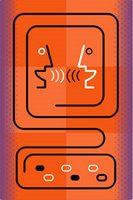 The following is a guest post by John Garruto, school psychologist with the Oswego School District and member of the IQs Corner Virtual Community of Scholars. John reviewed the following article and has provided his comments below. [Blog dictator note - John's review is presented "as is" with only a few minor copy edits by the blog dicator and the insertion of some URL links]
The following is a guest post by John Garruto, school psychologist with the Oswego School District and member of the IQs Corner Virtual Community of Scholars. John reviewed the following article and has provided his comments below. [Blog dictator note - John's review is presented "as is" with only a few minor copy edits by the blog dicator and the insertion of some URL links]Fuchs, D. & Young, C.L. (2006). On the Irrelevance of Intelligence in Predicting Responsiveness to Reading Instruction. Exceptional Children, 73(1), 8-30. (click here to view)
There has been considerable debate regarding the role of cognitive/intellectual assessment in the Response to Intervention (RTI) paradigm, primarily with regard to the identification of students with learning disabilities (LD). The purpose of this article was to review the relationship of IQ scores to performance in reading intervention program. Fuchs and Young reviewed 13 studies with somewhat mixed results. Below is my brief synopsis of their main conclusions:
- Eight of the studies found IQ to be a significant correlate to reading. However, in many cases, fidelity of treatment was not always established.
- The authors noted a modest ATI (Aptitude-Treatment-Interaction) relating to the importance of IQ to success with the type of treatment (for example, those with higher IQ’s tended to do better with decoding, fluency, and comprehension training, but IQ was less related to success in phonemic awareness training.)
- Overall, Fuchs & Young, while conceding that IQ and a multi-factorial view of cognitive abilities are probably not as important to LD diagnosis as other proponents might espouse, there seems to be a role for the IQ test as part of the process of determining how to differentiate instruction.
Technorati Tags: pscyhology, educational psychology, school psychology, special education, LD, learning disabilities, intelligence, IQ tests, IQ scores, cognition, RTI, response to intervention, CHC, CHC theory, Catell Horn Carroll
- Fuchs and Young appropriately suggest that further investigations need to examine the relations between multi-factorial models of intelligence (e.g., CHC theory) and response-to-treatment interventions. They do concede that all of their studies use overall ‘g’ as a single predictor. However, a careful inspection reveals that most of the studies used the Wechsler batteries (WISC-III or earlier versions). If one examines the Olde School Wechsler…half of the test measures Verbal IQ or crystallized intelligence (Gc). There is a substantial body of literature relating crystallized intelligence (Gc) to reading ability.
- None of the IQ tests included in the review measured auditory processing abilities (Ga), like those measured in the WJ III and specialized batteries (e.g., CTOPP). Therefore, it is not surprising that the authors found little relationship between intelligence tests and phonemic awareness training.
- Cognitive ability tests have changed since the days of David Wechsler. We now know (and as Fuchs and Carlson highlight) that skills such as phonological processing (Ga-PC), rapid naming (Glr-NA), orthographic processing, etc. are important in learning to read. Although the Wechsler batteries do not assess these skills, there are cognitive ability tests that currently do. I would suggest that the relations between cognitive batteries that include measures of these important reading-related abilities would likely demonstrate stronger relations with intervention responsiveness. Of course, this is an empirical question begging further research.
- Although Fuchs and Young do not necessarily espouse a multi-factorial model of intelligence for LD identification, clearly there are implications for a problem-solving model. If IQ (and let’s face it…IQ is predominantly Gc in the case of the Wechsler's) accounts for unique variance in predicting treatment outcome and explicit PA training is not related to IQ (but I would wager it would be related to auditory processing profiles), using CHC theory and CHC-designed batteries (e.g., WJ III; cross-battery designed assessments) seems to fit well within the context of this study. Other significant correlates to reading have been processing speed (Gs), short-term memory (Gsm), and long-term storage and retrieval (Glr). All of the above abilities are either underrepresented or not represented in the Wechsler batteries, the primary battery that served as the crux of this review.
- The article recognizes and describes the two primary factions that are prominent in contemporary special education and school psychology fields--those who believe in response-to-intervention as the way to determine LD eligibility, and those who espouse the need for cognitive assessment. This article does not diminish the importance of RTI or the problem-solving model. In fact, it supports many of the changes noted in the regulations regarding the importance of RTI as a part LD determination process. It places importance on using empirically-based instruction and interventions. Fuchs and Young also highlight the significance of formative assessment and ongoing progress monitoring
powered by performancing firefox
